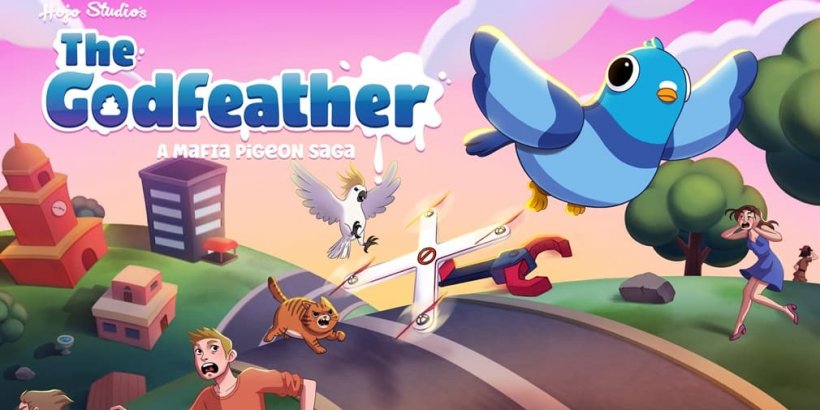Microsoft's Quake 2 AI Prototype Ignites Online Debate
Microsoft's recent venture into AI-generated gaming has ignited a fierce debate across the gaming community, following the release of an interactive demo inspired by the classic game Quake II. This demo, powered by Microsoft's Muse and the World and Human Action Model (WHAM) AI system, showcases a groundbreaking approach to game development by dynamically generating gameplay visuals and simulating player behavior in real-time, all without the use of a traditional game engine.
Microsoft describes the demo as a "bite-sized" experience that plunges players into an interactive space where AI crafts immersive visuals and responsive actions on the fly. This demo, according to Microsoft, represents a significant leap towards the future of AI-powered gameplay, allowing users to influence the game's progression with every input, much like playing Quake II on a conventional engine.
However, the demo's reception has been overwhelmingly negative. Shared by Geoff Keighley on X / Twitter, the demo drew hundreds of critical responses. Many gamers and industry observers expressed concern over the potential future of AI in gaming. A Redditor lamented the possibility of AI-generated content becoming the norm, fearing that it would strip away the human element from game development. Others criticized the demo's quality, with some humorously stating that they had a more engaging experience imagining the game in their heads.
Despite the backlash, not all feedback was negative. Some saw the demo as a promising glimpse into future possibilities, acknowledging the impressive feat of creating a coherent and consistent AI-generated world. They viewed it as a tool with potential applications in early concept and pitching phases, suggesting that while not suitable for full games, it could lead to advancements in other AI fields.
The debate over Microsoft's AI demo comes at a time when generative AI is a hot topic in both the gaming and broader entertainment industries, which have faced significant layoffs recently. The use of AI in game development has raised ethical and rights concerns, as well as questions about the quality of AI-generated content. For instance, Keywords Studios' attempt to develop a game entirely with AI resulted in failure, highlighting the limitations of AI in replacing human creativity and talent.
Despite these challenges, some companies continue to explore generative AI. Activision, for example, disclosed using AI for certain assets in Call of Duty: Black Ops 6, amidst criticism over an AI-generated zombie Santa loading screen. Additionally, the controversy surrounding an AI-generated video featuring Horizon's Aloy character has brought attention to the ongoing demands of striking voice actors.
In conclusion, Microsoft's AI-generated Quake II demo has sparked a significant conversation about the role of AI in gaming. While some see it as a step towards innovative game development, others are wary of its implications for the future of the industry, highlighting the ongoing tension between technological advancement and the preservation of human creativity in gaming.
-
 Feb 20,25Where to Preorder the Samsung Galaxy S25 and S25 Ultra Smartphones Samsung's Galaxy S25 Series: A Deep Dive into the 2025 Lineup Samsung unveiled its highly anticipated Galaxy S25 series at this year's Unpacked event. The lineup features three models: the Galaxy S25, S25+, and S25 Ultra. Preorders are open now, with shipping commencing February 7th. Samsung's web
Feb 20,25Where to Preorder the Samsung Galaxy S25 and S25 Ultra Smartphones Samsung's Galaxy S25 Series: A Deep Dive into the 2025 Lineup Samsung unveiled its highly anticipated Galaxy S25 series at this year's Unpacked event. The lineup features three models: the Galaxy S25, S25+, and S25 Ultra. Preorders are open now, with shipping commencing February 7th. Samsung's web -
 Jan 27,25Roblox: Bike Obby Codes (January 2025) Bike Obby: Unlock Awesome Rewards with These Roblox Codes! Bike Obby, the Roblox cycling obstacle course, lets you earn in-game currency to upgrade your bike, buy boosters, and customize your ride. Mastering the various tracks requires a top-tier bike, and thankfully, these Bike Obby codes deliver
Jan 27,25Roblox: Bike Obby Codes (January 2025) Bike Obby: Unlock Awesome Rewards with These Roblox Codes! Bike Obby, the Roblox cycling obstacle course, lets you earn in-game currency to upgrade your bike, buy boosters, and customize your ride. Mastering the various tracks requires a top-tier bike, and thankfully, these Bike Obby codes deliver -
 Mar 04,25The Godfeather swoops onto iOS, pre-registration open now! The Godfeather: A Pigeon-Fueled Mafia War Arrives on iOS August 15th! Pre-register now for The Godfeather: A Mafia Pigeon Saga, a roguelike puzzle-action game launching on iOS August 15th! Evade the Pidge Patrol, unleash your avian arsenal (ahem, droppings), and reclaim the neighborhood from both h
Mar 04,25The Godfeather swoops onto iOS, pre-registration open now! The Godfeather: A Pigeon-Fueled Mafia War Arrives on iOS August 15th! Pre-register now for The Godfeather: A Mafia Pigeon Saga, a roguelike puzzle-action game launching on iOS August 15th! Evade the Pidge Patrol, unleash your avian arsenal (ahem, droppings), and reclaim the neighborhood from both h -
 Jan 11,25Jujutsu Kaisen Phantom Parade: Tier List Revealed This Jujutsu Kaisen Phantom Parade tier list helps free-to-play players prioritize character acquisition. Note that this ranking is subject to change with game updates. Tier List: Tier Characters S Satoru Gojo (The Strongest), Nobara Kugisaki (Girl of Steel), Yuta Okkotsu (Lend Me Your Stren
Jan 11,25Jujutsu Kaisen Phantom Parade: Tier List Revealed This Jujutsu Kaisen Phantom Parade tier list helps free-to-play players prioritize character acquisition. Note that this ranking is subject to change with game updates. Tier List: Tier Characters S Satoru Gojo (The Strongest), Nobara Kugisaki (Girl of Steel), Yuta Okkotsu (Lend Me Your Stren
